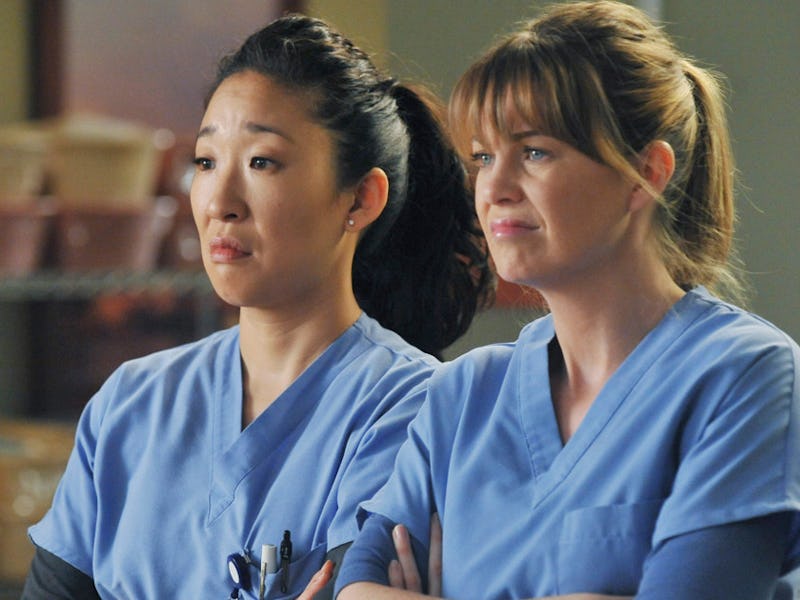American healthcare would be a lot easier to deal with if it was anything like it is on Grey’s Anatomy. In some ways, it is — but not where it matters, argued a handful of surgeons in a new paper on Monday. After an epic binge-watch of the long-running medical drama, the researchers argued that the show gets key points wrong about what patients and their families can expect from a hospital stay.
To collect data for their paper, published Monday in Trauma Surgery and Acute Care Open, the team of surgeons at Dignity Health St. Joseph’s Hospital and Medical Center in Phoenix, Arizona, watched 269 episodes of Grey’s Anatomy, jotting down notes on the outcomes of trauma patients on the show. Comparing that data to actual cases in the National Trauma Data Bank (NTDB), they found, perhaps not surprisingly, some pretty big discrepancies.
The show depicted higher rates of mortality and higher rates of patient transfer directly to the operating room from the emergency department compared to real-life patients. In addition, the team found that the show showed a smaller proportion of patients getting transferred to long-term care than in real life and that the TV patients recovered more quickly than the real patients.
Surgeons say 'Grey's Anatomy' could give patients the wrong impression about trauma care.
The study authors worry that the acclaimed drama could be giving patients inaccurate expectations for their own outcomes and their family members’ outcomes in an emergency medicine scenario. While everyone understands that Grey’s is just TV, most people also don’t comb through medical cases and as such probably don’t have a concrete idea of what the statistics actually are. For better or for worse, we get a whole lot of our information from TV.
“The public’s familiarity with the real-life hospital course and recovery from major injury is limited to personal experience, so it is conceivable that, for many, expectations are largely shaped by the portrayal of traumatic injury on television,” write the authors.
Grey’s Anatomy isn’t totally misleading, though. In fact, the show’s writers have made intentional efforts to draw attention to medical topics that the average viewer might not know about. The current season of Grey’s Anatomy, Season 14, includes a multi-episode story arc about a new gender-affirming surgery procedure that’s based on an actual medical case, highlighting the under-studied field of transgender healthcare. Also in the current season, one of the main characters, Dr. Miranda Bailey, an African-American woman, suffers a heart attack but is told by multiple white male doctors that her symptoms are stress-related. The showrunners used this arc to emphasize how women of color are at a disproportionately high risk for coronary disease and how doctors can all-too-easily have dangerous blind spots.
Surgeons are concerned that, since patients get a lot of information from TV, inaccurate representations could give patients the wrong idea.
In 2008, during Season 4, the Kaiser Family Foundation conducted a study in partnership with the show’s writers that demonstrated how the drama could effectively persuade misinformed viewers. By working with the showrunners to write a character arc that addresses how likely it is for an HIV-positive mother to transmit the disease to an unborn child — not that likely, with proper treatment — and surveying viewers before and after watching the episode, researchers found that the show has the very real potential to clear up misconceptions about health topics.
Nevertheless, for the sake of good TV, Grey’s Anatomy shows only extreme cases, so the sample of cases in the show don’t reflect the healthcare experiences of the general population, for the most part. It wouldn’t be a very exciting show if it did. Grey’s Anatomy may indeed give fans the wrong idea of how good healthcare can be, but it has in other ways shown it can be a powerful tool of social change in other ways: Given its demonstrated power and influence, the show could educate people even more effectively if the showrunners tried a little harder to place their stories in reality.
